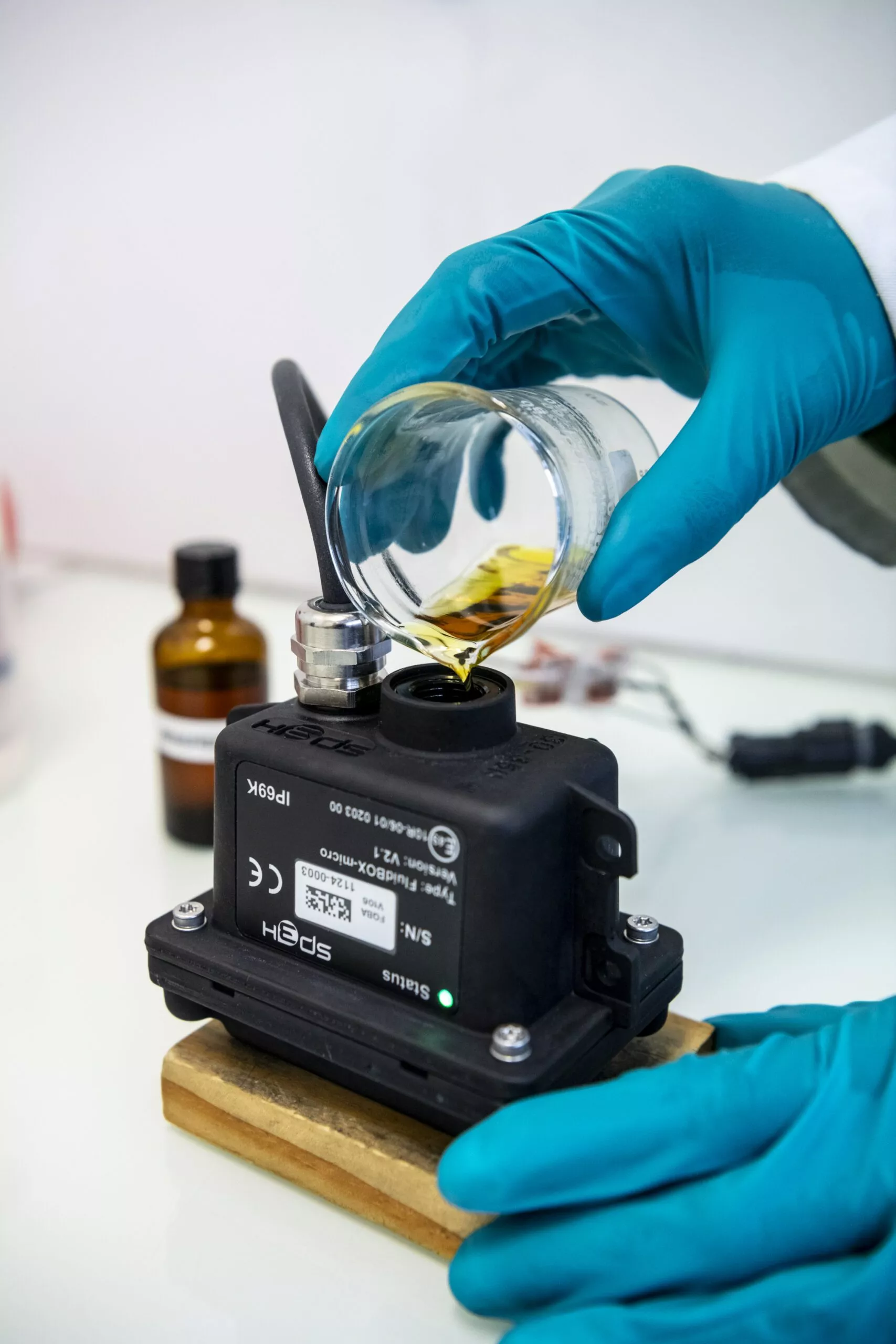The fuels of today and tomorrow
As part of the energy transition towards carbon-neutral transport by 2050, SP3H is one of the key players offering the technological means to guarantee that every vehicle using biofuels and efuels achieves the performance required to provide an immediate alternative for everyone in the future energy mix.
The FluidBox micro, drawing on advanced techniques from the refining sector, is an intelligent optical scanner using near infrared (NIR) technology to identify the molecular structure of fluids, particularly fuels, in real time. These scanners are capable of digitising and analysing the fingerprint and key characteristics of organic fluids in industrial and severe environments. Reference fuel databases covering around 40 countries have been built up over several years. Around 4,000 samples have been referenced, scanned and digitised in our local laboratory. From this database, we have developed models, digital twins, to recognise synthetic fuels from fossil fuels.
B100
B100 is a fuel made from 100% fatty acid methyl esters in accordance with standard EN 14214.
Produced from rapeseed, B100 vegetable energy reduces CO2 emissions by up to 60% and fine particles by up to 80%.
More economical than diesel, this biodegradable fuel provides an immediate environmental solution for road professionals, while supporting French agriculture and rural areas.
HVO
Hydrotreated vegetable oil, known by its abbreviation HVO, is a 100% renewable biofuel. It is produced from waste, residual oils and fats, such as used cooking oil. HVO100 can reduce greenhouse gas emissions by up to 90% compared with fossil diesel on a lifecycle basis.

E-fuels
E-fuels (synthetic fuels or electrofuels) are a form of fuel produced from renewable electricity. Their production involves two key components: carbon dioxide and hydrogen. The origins of e-fuels lie in the capture of carbon from CO2 in the ambient air through a process known as direct air capture, the only ‘carbon-negative’ process, and the production of hydrogen through the electrolysis of water, using electricity from decarbonised sources such as solar or wind power. The advantage of e-fuels is that they can be used in existing vehicles and infrastructure without major modification, while potentially reducing net CO2 emissions. They therefore represent a promising solution for decarbonising sectors that are difficult to electrify, such as aviation and maritime transport, or for long-term energy storage.
Digital twins
Fuel certification using digital twins involves taking advantage of advanced digital modelling and simulation technologies, including AI, to reproduce and analyse the characteristics and behaviours of various types of fuel. In this context, a digital twin is a virtual representation of a physical fuel, created using comprehensive data integration and modelling techniques.
The process begins with the collection and assimilation of extensive data on the chemical composition, properties and performance of different fuels. This data is then used to build a highly detailed numerical model based on HCP©, or a digital twin of the fuel based on molecular structure identification. This model faithfully reflects the actual behaviour of each fuel. Advanced algorithms and calculation methods are used to simulate the interactions between fuel components, combustion processes and emissions.
The advantages of using digital twins for fuel certification are manifold. They provide an in-depth understanding of fuel properties, enabling more accurate analysis and prediction of combustion characteristics. This in turn facilitates optimisation of engine performance, efficiency and emissions control.
In addition, digital fuel twins allow scenarios to be tested under a variety of conditions, helping to identify potential problems and fraud and ensure compliance with regulatory standards. The technology enables rapid prototyping and iteration, reducing the time and costs associated with traditional laboratory testing.
